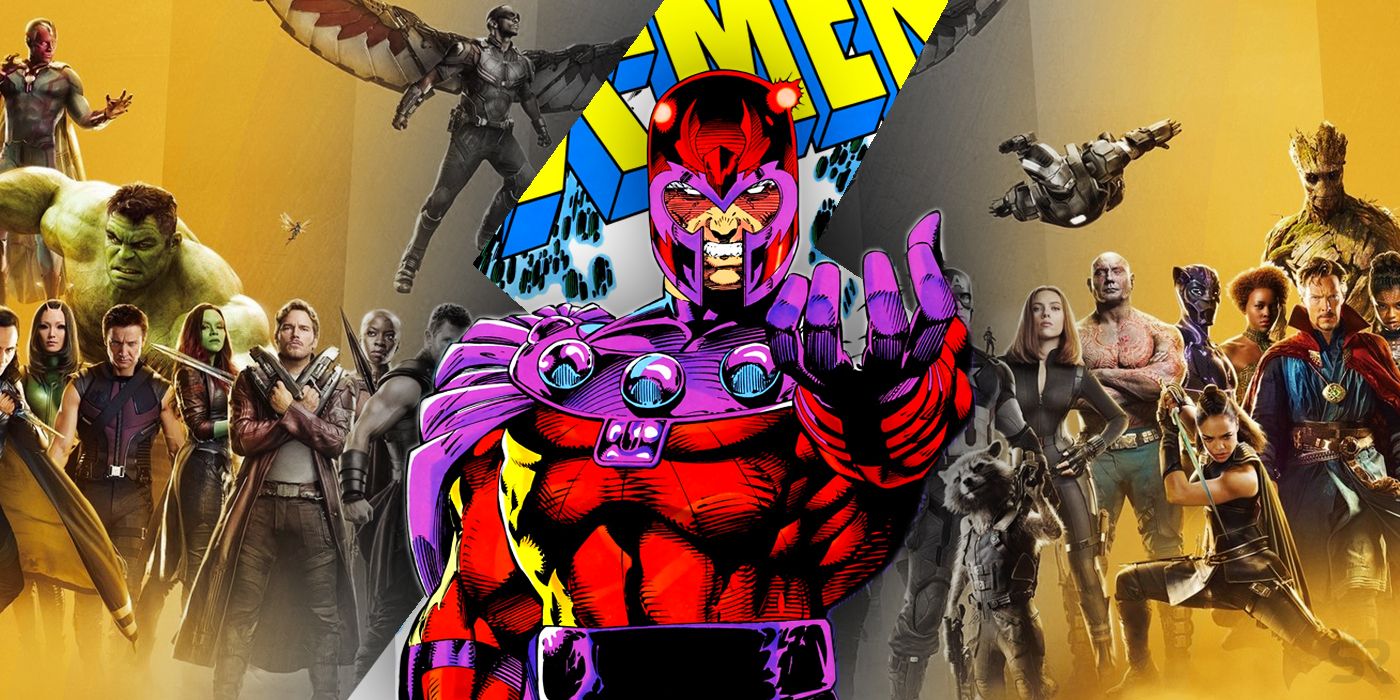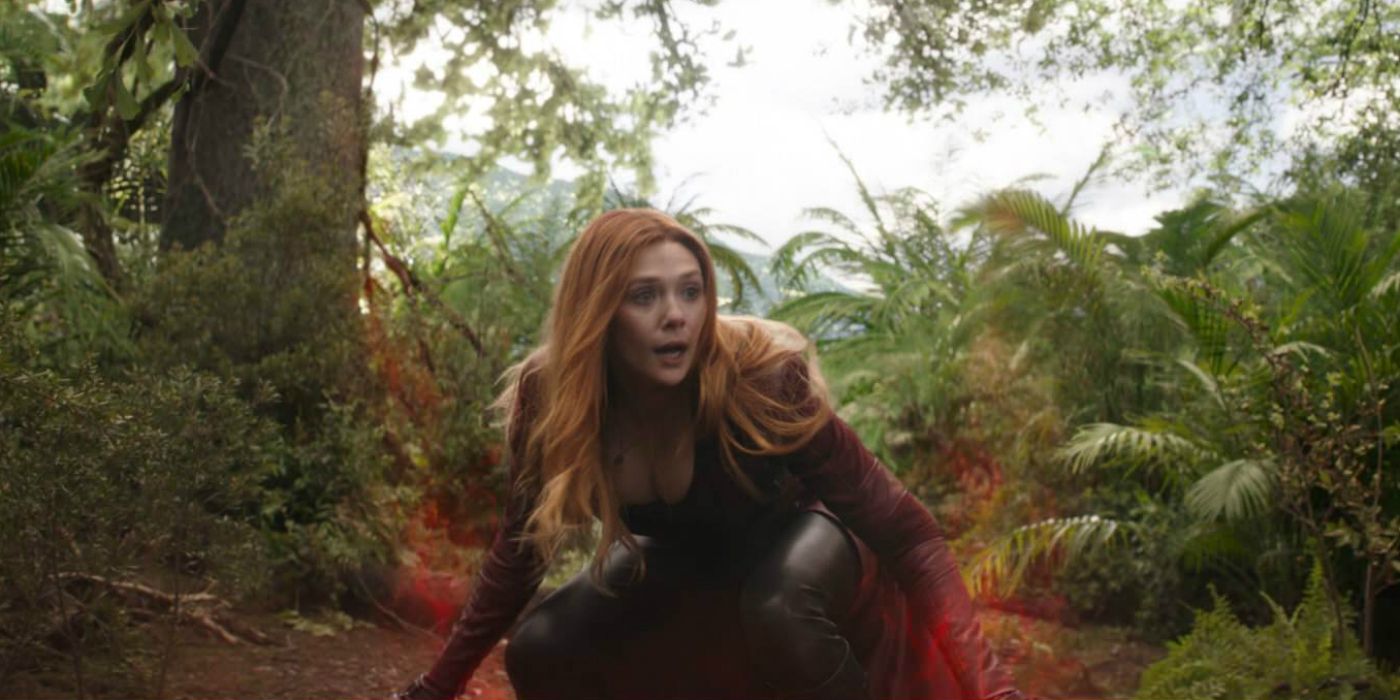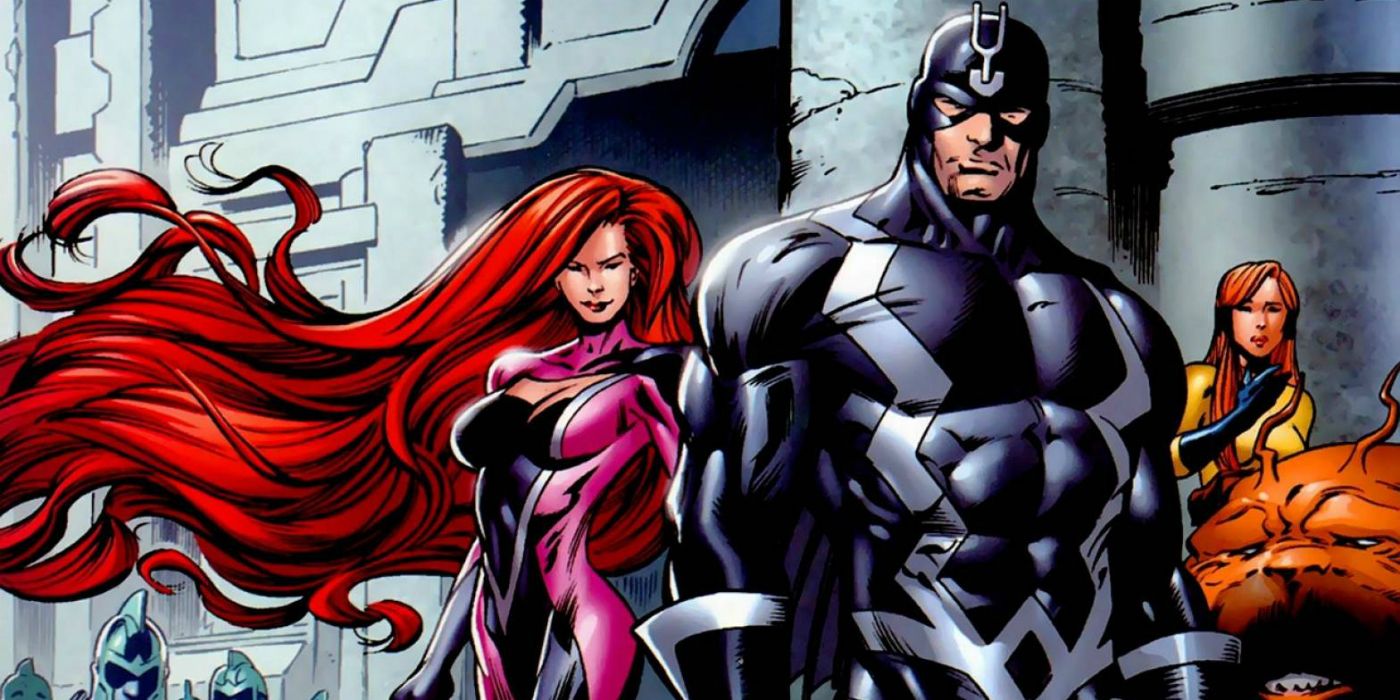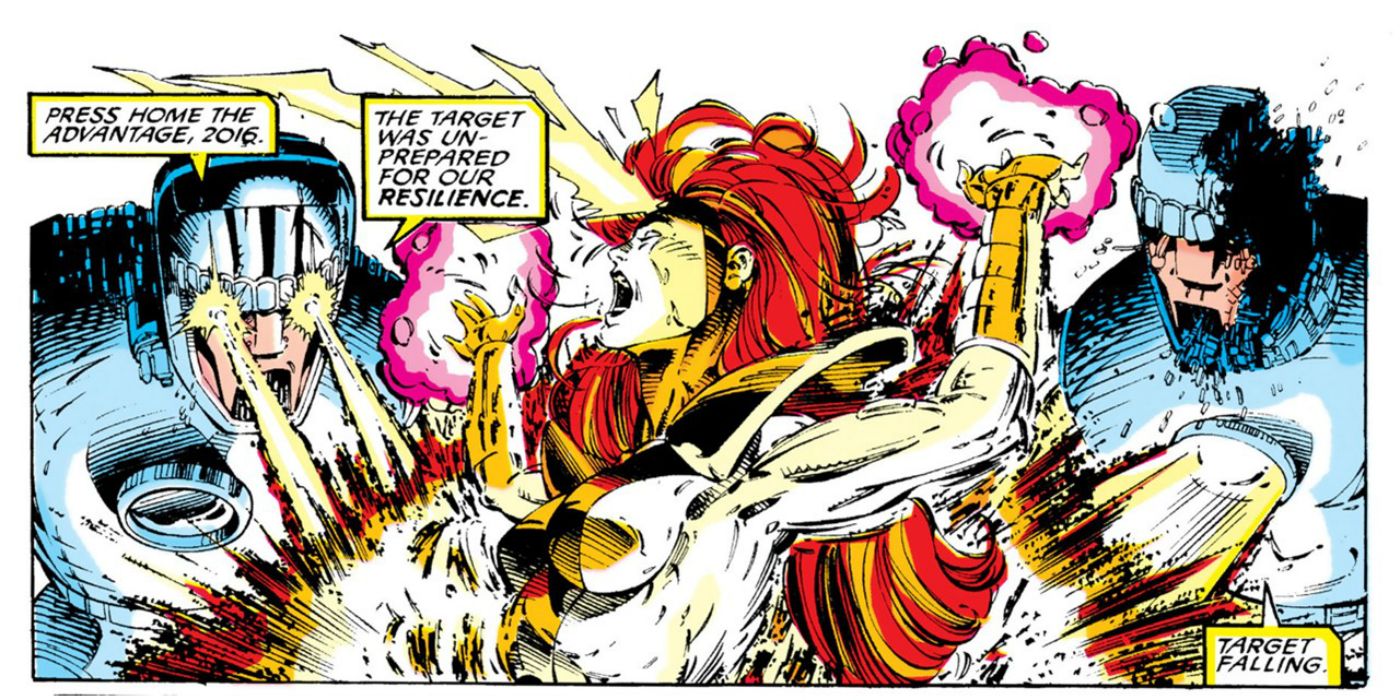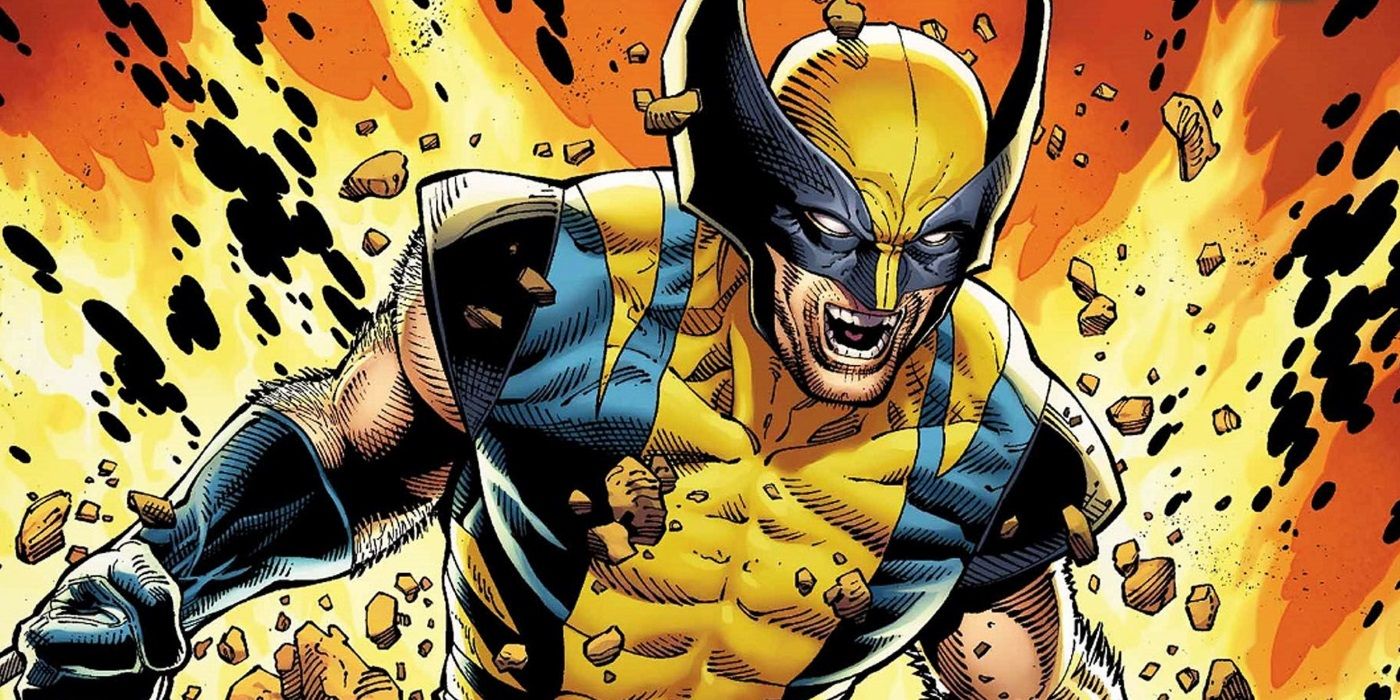Disney's merger with Fox has gained shareholder approval, and - assuming everything goes as planned - it won't be long before the X-Men become part of the Marvel Cinematic Universe. But how can this be done without completely breaking continuity?
In December last year, Disney and Fox finalized a deal that will see the House of Mouse purchase the bulk of Fox's film and TV empire. United States regulators approved it in June, and Disney and Fox shareholders voted in favor of the merger a month later. It's not quite a done deal yet, with overseas regulators still making crucial decisions, including over the fate of Sky Broadcasting. Should these international regulators also sign off on the deal, the two companies will then begin a months-long process that will ultimately see 21st Century Fox become part of Disney.
Related: Everything That Must Happen Before Disney Actually Owns Fox
But, it looks likely, and Disney CEO Bob Iger has already confirmed that he intends the X-Men and Fantastic Four franchises to become part of the MCU. However, while the Fantastic Four can be added with relative ease, the X-Men are a far trickier proposition; just how do you incorporate the idea of mutants into this shared cinematic universe? The problem with the shared universe model is that everything affects everything else. If mutants have been part of the MCU all along, why haven't we seen them before now? There's a real risk that Marvel could damage their often-shaky continuity beyond repair. Here, we're going to look at one approach they could take that would avoid that.
- This Page: The MCU Can Introduce Latent Mutants
- Page 2: How This Inhumans Idea Would Work In The MCU
- Page 3: The Problem With Latent Mutants in The MCU
The MCU Can Have The Latent Mutant Gene Activated
The key to introducing the mutants may lie in the X-Men already in the MCU. Scarlet Witch and Quicksilver are mutants in the comics, but are so linked to the Avengers Marvel still had the rights to the characters, leading to their introduction in Avengers: Age of Ultron. Peter Maximoff wasn't long for this world, but his sister has become a key part of the shared universe - and clues suggest she may be a retconned mutant.
In Age of Ultron, it's stated Wanda gained her powers after being subjected to the cosmic energy of the Mind Stone. But the new Marvel Visual Dictionary suggests something different. "Whether it altered her or merely unlocked something latent inside Wanda," the Visual Dictionary notes, "the Infinity Stone on Loki's scepter bestowed incredible powers of the mind." The clear implication is that the Mind Stone may have simply triggered something that already lay dormant within her.
In the comics, "latent" mutants are people born with a dormant X-gene. If the X-gene is ever activated, usually by an outside power, their mutation will be triggered and they'll gain access to their abilities. Wanda and her brother Pietro could simply have been the only people exposed to the Mind Stone who had dormant X-genes. Indeed, that would explain why Quicksilver's powers seem so oddly unconnected to the Mind Stone; Strucker's experiments triggered the latent powers that were already there.
Read More: Scarlet Witch Could Be Retconned As A Mutant In The MCU After All
Should everything go as planned between Disney and Fox, the path is clear for Marvel Studios to retcon Scarlet Witch as a latent mutant. This could be extrapolated to apply wider: assuming a significant number of people across the globe have a latent X-gene, all it would take is a release of cosmic energy across the planet - perhaps even the destruction of an Infinity Stone or a burst of energy from the Quantum Realm - to activate new mutants worldwide.
Page 2: How This Inhumans Idea Would Work In The MCU
This Is What the MCU Would Have Done With The Inhumans
Ironically, this is similar - although not identical - to the approach Marvel Studios would probably have taken with the Inhumans. Marvel planned to release an Inhumans movie before Avengers: Infinity War, one that would presumably have added the Royal Family of Attilan to the ranks of the MCU's big-screen stars. Given Avengers: Infinity War was heavily influenced by Jonathan Hickman's 2013 Infinity event, it's reasonable to assume that the original plan was for Thanos to attack the Inhuman city of Attilan. In the comics, Thanos's attack led to the Terrigen Mist - the source of every Inhuman's mutation - being released into Earth's atmosphere. Exposure to even trace elements of the Terrigen Mist triggered evolution in anyone with an Inhuman gene.
Related: The Inhumans Are Done For Now That X-Men Are Returning to Marvel
The mutant idea operates in a similar manner, although there would be subtle differences, though. We're proposing a one-off cosmic event of some kind, a release of energy across the globe that triggers latent mutant genes, rather than a cloud that's pulled along by air currents. What's more, with the Inhumans, when the Terrigen was finally removed from the atmosphere all new mutations stopped. In this case, though, we're suggesting a fundamental change to the nature of humanity in the MCU; the activation of an X-gene in the entire human race, one that would never go dormant again. In future, babies would be born with active X-genes, not dormant ones, and their mutations would trigger when they reached puberty - just as in the comics.
How the "Mutant Menace" Would Fit Into MCU Continuity
But there's more to the X-Men than the idea of mutants. At its core, the story of the X-Men is of the battle against prejudice and bigotry, with Professor Xavier's team battling to protect a world that hates and fears them; they've been opposed by everything from mutant-hunting robot Sentinels to anti-mutant religious extremists. Comic book readers have always been rather bemused at the fact the X-Men exist in the same world as the Avengers, a super-team who are traditionally celebrated and adored, and whose major arcs rarely deal with the idea of the public fearing them. Can the X-Men and the Avengers coexist on the big screen without similar problems?
Ironically, the overarching direction of the MCU makes it easy to set up the idea of mutants being seen as a potential menace. While the Avengers were indeed celebrated as heroes at first, a series of controversial decisions and horrific tragedies mean the team has rather lost its luster in the eyes of the public. It all started in Captain America: The Winter Soldier, when Steve Rogers brought down S.H.I.E.L.D. - the organization that was supposed to oversee the Avengers. Black Widow then made a show of defiance before a Senate subcommittee, likely gaining a lot of political and media enemies. In Avengers: Age of Ultron, a clash between two Avengers - Iron Man and Hulk - caused a lot of damage in Johannesburg, and probably some loss of life. That was followed up by the tragedy of Sokovia, and public and political mood turned against the Avengers wholesale. By Captain America: Civil War, the world's governments felt secure enough in terms of public support to push the Sokovia Accords upon the Avengers. To say the public are uncomfortable with superhumans would be an understatement.
Related: The Avengers Still Have To Deal With The Sokovia Accords After Infinity War
Given that context, it's not hard to imagine a negative reaction to the sudden, unexpected emergence of mutants. It's important to remember that mutation is uncontrolled, essentially a genetic lottery; where Steve Rogers gained his powers as a result of his good character, and Tony Stark became Iron Man because of his genius, anybody could be a mutant. Worse still, in the scenario we're proposing mutant powers would be spontaneously activated all across the world at once. When mutant powers first manifest, they're raw and uncontrolled, and frequently highly destructive. Given that's the case, it's not hard to imagine the public concluding mutants were a threat. Essentially, the Marvel Studios setup begets mutant fear.
Page 3: The Problem With Latent Mutants in The MCU
The Problems This Poses in Adapting the X-Men
This theory allows Marvel to seamlessly add the idea of mutants into the MCU, although it has problems when trying to apply classic narratives. The fundamental issue is that there are a number of key mutants whose long, extended history is important to their character arcs and even powers. Apocalypse hails from Ancient Egypt, Magneto's motivation is tied to the horrors he endured during the Holocaust, and Wolverine has a long, confused history that runs all the way back to the 1800s. The very idea that Charles Xavier can serve as a mentor and teacher to young mutants requires him to have had access to his powers for quite a while now.
But there may be a solution. If exposure to the Mind Stone triggered Scarlet Witch and Quicksilver's latent X-genes, it's not out of the question for a small number of mutants have indeed had their powers activated in the past. It's difficult to imagine what energy releases could have triggered Wolverine's powers back in the 1800s, but the comic book version of Apocalypse has always been tied to an alien race known as the Celestials, and perhaps Magneto was subjected to Hydra experiments during World War II (that may also explain his long life). A couple of other mutants could have had their powers activated as a result of exposure to radiation from atomic bomb tests; that may even fit with Charles Xavier, who served in the military for a while. There'd be a certain degree of irony to this, given Stan Lee originally envisioned mutants as the result of increasing radiation levels in Earth's atmosphere. That's why he sometimes called the X-Men the "Children of the Atom."
Looking to the wider MCU, there's actually circumstantial evidence to support this idea should a retcon happen. According to Agents of S.H.I.E.L.D., the organization maintained a list they referred to as the Gifted Index, that allowed them to keep track of powered individuals. Just the name brought a smile to lovers of the X-Men comics, given Xavier often called his mutant students "gifted." That list could be retconned as including latent mutants whose powers were triggered due to some sort of incident.
Related: Don't Expect To See the X-Men in the MCU Until At Least 2021
What we have here is a deceptively simple solution to the X-Men conundrum in the MCU that deftly maintains the continuity without any need for timeline fudging or a full rewrite. Importantly, any problems with this idea aren't impossible to solve; they just require a little creativity. If Marvel did take this approach, it would allow them to introduce an X-Men team akin to their core concept; a group of young mutants who are suddenly thrown into a world that knows nothing but hate and fear for them.

